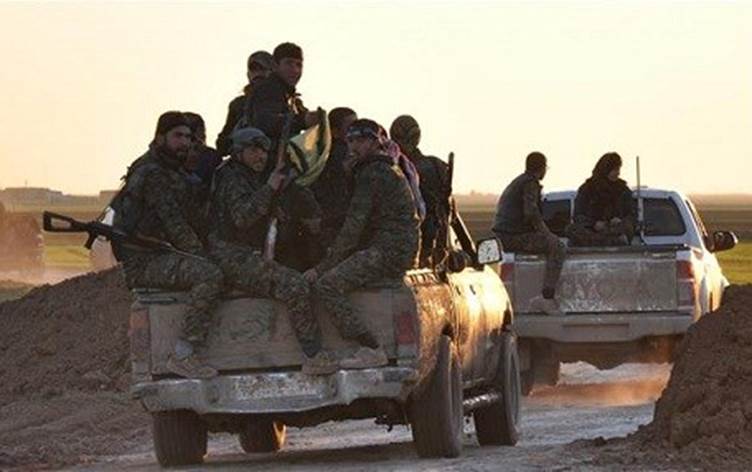ERBIL, Kurdistan Region—Representatives of the Syrian government and the Kurdish People’s Protections Units (YPG) held a meeting at the Qamishli airport in an effort to end the dispute between the two parties, Rudaw has learned.
The governor of Hasakah, Muhamad Ali, represented the Syrian government in the meeting Friday morning with YPG commander Sipan Hamo.
During the three-hour meeting, they discussed the military situation, services in the region, and humanitarian issues. It is expected they will hold a second meeting within three days.
Dr. Farid Saadun, a political analyst and university professor, told Rudaw from Qamishli that there will be a meeting between both sides after the Eid holiday.
After clashes in Hasakah between the Syrian government and the YPG, the majority of the governmental offices and the university came under Kurdish control. The Syrian government, as a result, cut deliveries of medical supplies and other needs to the city. It has also threatened to close down the university or change its location should the government not regain control over it.
The governor of Hasakah, Muhamad Ali, represented the Syrian government in the meeting Friday morning with YPG commander Sipan Hamo.
During the three-hour meeting, they discussed the military situation, services in the region, and humanitarian issues. It is expected they will hold a second meeting within three days.
Dr. Farid Saadun, a political analyst and university professor, told Rudaw from Qamishli that there will be a meeting between both sides after the Eid holiday.
After clashes in Hasakah between the Syrian government and the YPG, the majority of the governmental offices and the university came under Kurdish control. The Syrian government, as a result, cut deliveries of medical supplies and other needs to the city. It has also threatened to close down the university or change its location should the government not regain control over it.




Comments
Rudaw moderates all comments submitted on our website. We welcome comments which are relevant to the article and encourage further discussion about the issues that matter to you. We also welcome constructive criticism about Rudaw.
To be approved for publication, however, your comments must meet our community guidelines.
We will not tolerate the following: profanity, threats, personal attacks, vulgarity, abuse (such as sexism, racism, homophobia or xenophobia), or commercial or personal promotion.
Comments that do not meet our guidelines will be rejected. Comments are not edited – they are either approved or rejected.
Post a comment